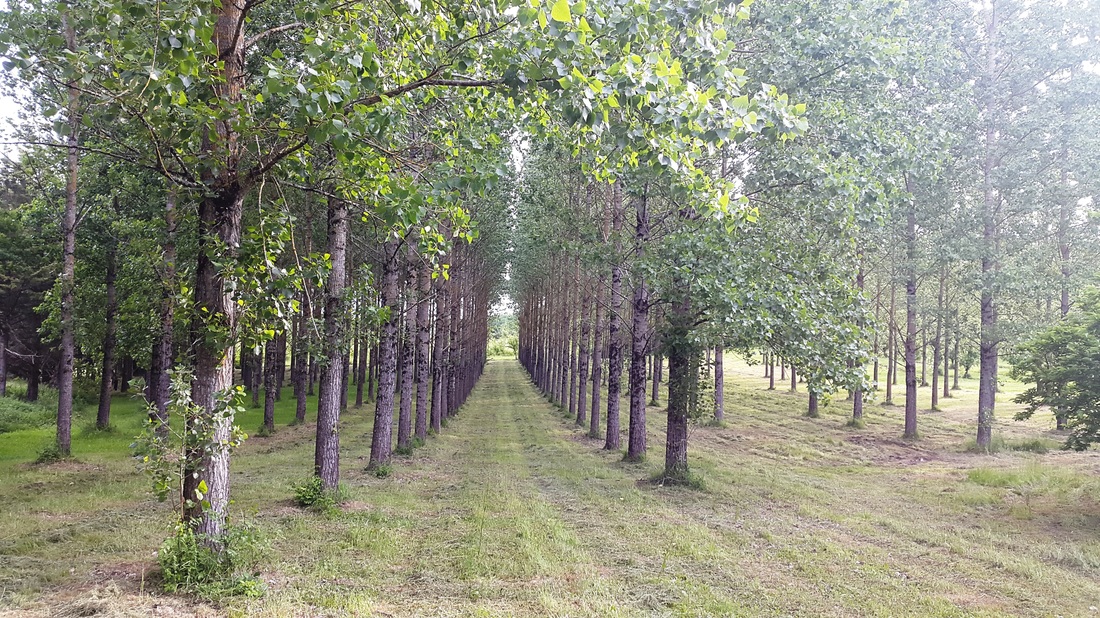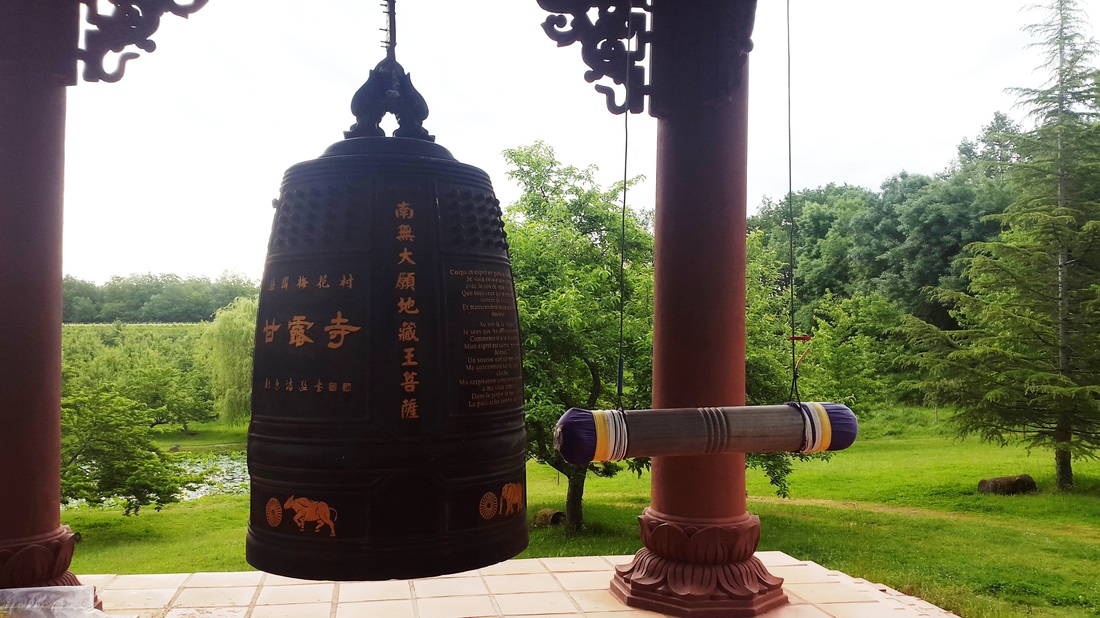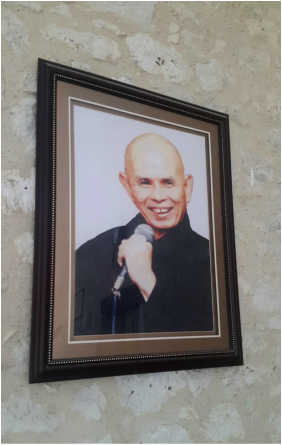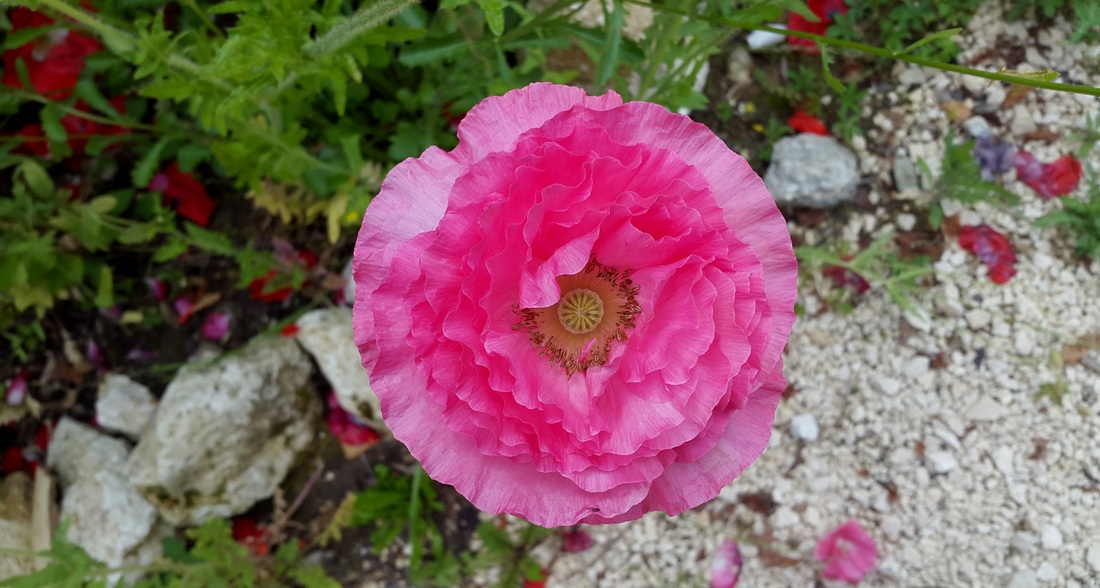|
I come into contact with lots of people in the course of a week - close friends, family, yoga students and acquaintances. I can't help but notice over the last few months that nearly everyone I speak to seems to be saying the same thing. Something along the lines of "I just don't know where the time has gone" or "I'm struggling to stay on top of everything". These are fairly common remarks in today's busy modern world, but the intensity with which people are expressing this sentiment seems to me to have increased lately. One of the key things I've learned over the years is that life is more beautiful when it feels spacious and uncluttered. Fortunately, the method of achieving this is really quite simple. Unfortunately, it's not always easy to put into action, because it demands a significant shift in attitude and strong discipline to continue. When we feel ourselves swimming against the tide of what now seems to be the status quo - the idea that life is a race against time - it's easy to feel discouraged. That's why it's important to surround ourselves with as many like-minded friends as possible, for moral support and encouragement. There are two main methods we can use to experience a greater feeling of spaciousness in life. The first is to commit to practices which help increase our container for experience and empower us to deal more effectively with life's inevitable ups and downs. The Sanskrit word, Sadhana, is useful shorthand for this first method and describes the skilful application of practices to help move us towards a spiritual goal. The second creator of spaciousness, which naturally arises from the first, is the cultivation of discernment. When we become more adept at distinguishing what is essential from what is not, it is much easier to let go of what is non essential in our lives. One of the best metaphors I've come across to describe this art of discernment is Stephen Covey's Rocks story. You can read the full story here, but the premise is that our priorities in life can be divided into those that are fundamentally important, the big rocks, and those that are more peripheral, the gravel, sand and water. If you see your life as a jar, the only way you can fit the big rocks into the jar is by putting them in first. Otherwise, the jar ends up full of peripheral gravel and sand and there is no space for the rocks, no space for the fundamental stuff of life. So, think about it now, what are your rocks? What do you really wish to prioritise and what are you willing to let go of? We need to get really honest with ourselves at this stage and decide what matters most. One extremely powerful way of doing this is to imagine you have just one week to live. If this was the case, how would you spend your remaining days? The answer to this question gives you your life's greatest priorities. To give you an example, my own rocks are family, close friends, time in nature, movement (yoga, dancing, walking) and chanting. The secret of a spacious life is to know and accept ourselves as we are, without letting society's pressures or other people's expectations dictate how we live our lives. With self awareness, we are better able to discern the conditions necessary for us to thrive and we can then attempt to create those conditions in our day to day life. Certain survival needs are fundamental to all humans - adequate clean water, food, shelter and love. However, like different species in the natural world, what we each require in order to thrive can vary greatly from person to person, depending on our constitution and personality type. The question is, are you content with mere survival or would you like to thrive? In a two month period from mid April to mid June, I stayed away from home for 20 nights on 7 different trips; some work, some play, one abroad, the rest in the UK. "So what?" you might ask - I know that constant travel is some people's normal and they thrive on it. The reason I mention it is because it's not my normal and I don't thrive on it or seek it as a lifestyle. The travel was unavoidable for me this year, due to the coming together of a number of circumstances and opportunities, but if I could have planned things differently I would. Living someone else's ideal life is not helpful - instead, we each need to live as close to our own ideal as we can, if we truly wish to thrive. In May, I found myself on retreat at Plum Village, Thich Nhat Hanh's practice centre in France. The focus is on mindfulness - on giving your full attention to whatever you are doing in the present moment, in order to cultivate clarity, solidity and a sense of inner freedom. With daily practice, mindfulness adds immense depth and lucidity to day to day existence. Where we stayed, in Lower Hamlet, a mindfulness bell in the dining hall rings every quarter of an hour, to remind everyone to stop running through life and to slow down, breathe and come back to the present moment. I've practiced with Thich Nhat Hanh's sangha for years now, but I had temporarily forgotten about the mindfulness bell. As I sat in the dining hall, having just arrived after a 12 hour journey from Wales to France, the first sounding of the bell surprised me. So much so that it reduced me instantaneously to tears. Tears of remembrance and of deep, sweet relief. In a moment, everyone stopped what they were doing and came into stillness - mid sentence, mid activity - and a profound silence fell all around. In that moment, the same silence re-emerged within me. I had finally come home to myself after months of running. Clearing clutter - Cultivating discernment in our inner and outer worlds In our world of constantly evolving technology, smart phones and social media, there is an overwhelming amount of information coming at us from every angle and it is quite literally impossible to stay on top of it all. No wonder we all feel stressed! I recently decided to experimentally abandon social media for a while - it represents some of the sand and gravel in my life and is something that felt easy to let go of. I've never spent an excessive amount of time on social media, but I have used it regularly to inform people about my yoga events and to share other related information. I became increasingly aware recently of how damaging the fragmented "sound bite" form of communication is to me and to my ability to sustain a more calm and focused awareness. It's very difficult to use social media mindfully, though I'm not claiming it's impossible. At this stage, having spent just 12 days free of social media, life feels more spacious than it has for a long time. As much as I love my Facebook friends and as much as I enjoyed some of the informative pages and groups, life feels so much more vibrant without those additional streams of information vying for space in my brain. Since I left, I've spent more time gardening, more time walking in nature, laughing with friends and enjoying my yoga practice. I've also felt focused enough to get on top of a backlog of admin work that I'd been postponing for months, due to the fact that I was simply trying to do too much. Trying to fit 30 hours into each day. It has long been understood that our internal and external worlds are reflections of one another. I only need to look at my living environment to get an insight into how I'm feeling inside. When my home or paperwork get chaotic due to too many road trips and not enough unpacking and integration time, you can guarantee I'm also feeling mentally scattered and more unfocused than usual. In contrast, when I've had a good de-cluttering session and the house is tidy (I send bags of unwanted items to charity on a regular basis), I feel a strong sense of calm and internal focus. I often get my best work done at these times. Whilst periodically letting go of clutter is important, it's equally important not to use this as an excuse to avoid doing our inner work. We can easily become overly focused on our external environment and circumstances and neglect the practices that support our inner life. This is an easy trap to fall into "I haven't got time. I'll do my yoga practice/ write my journal/ meditate once I've cleaned the whole house, washed the car etc etc". No! Do your Sadhana now. The house and the car can wait, I promise. Are there any habits or peripheral activities you could try giving up for a while? I challenge you to experiment and see what difference it makes. Sadhana - Increasing our container for experience When life is at its busiest, it's even more essential to prioritise our Sadhana - the practices that give us a deeper sense of inner space and connection. Unfortunately though, this is often when practices like yoga get pushed off the end of the priority list. Unless we see Sadhana as one of our rocks, it will forever be sacrificed to the latest mini-crisis which, in my experience, life is guaranteed to provide on a regular basis. In the short term, it might feel like we're saving time by neglecting our Sadhana, but the reality is that without the practices we need to regulate our nervous systems, stress levels can start to climb and everything can begin to feel more overwhelming. As the old Zen saying goes," You should sit in meditation for 20 minutes a day. Unless you're too busy, then you should sit for an hour." It sounds paradoxical to devote more time to Sadhana when you feel overwhelmingly busy, but anyone who has a meditative practice will know from experience that the sense of spaciousness that emerges from regular practice makes the commitment more than worthwhile. Just to be clear, a meditative practice which regulates the nervous system can vary from person to person - yoga, seated meditation, painting, writing, chanting, drumming, walking, dancing and gardening can all have positive effects on the nervous system and can form part of your regular Sadhana. It is the attitude we bring to these practices which influences their impact. If we practice something with true mindfulness, focusing our full attention on what we are doing, we immediately see the fruits of the practice in an increased sense of peace and wellbeing. Although most of the practices above involve an element of "doing", the beauty is that by doing any of these activities with complete awareness, we simultaneously increase our ability to simply "be". We become more able to be truly present and we begin to embody every moment with contentment and even joy. The benefits of Sadhana ripple out into every part of our life. It's very simple - when we are open, calm and centred, we simply perceive that we have more time and we are better able to complete tasks efficiently. Jack Kornfield describes the Buddha's teaching on openness: "Let yourself be open and life will be easier. A spoon of salt in a glass of water makes the water undrinkable. A spoon of salt in a lake is almost unnoticed." This is what I mean when I talk about increasing our container for experience. Sadhana helps us to become like the lake. The more inner spaciousness we cultivate through dedication to our daily practice, the less we are bothered by the minor inconveniences - the spoonfuls of salt - that come our way.
2 Comments
Louise Thorndycraft
23/6/2016 04:28:14 pm
Thanks Katy. Making space seems to be growing lots of new blog inspirations! It feels more meaningful sharing here than in the soundbite format. Look forward to reading your future blog postings too.
Reply
Your comment will be posted after it is approved.
Leave a Reply. |
Lessons from Mother NatureLouise Thorndycraft's blog - sharing thoughts about this multi-faceted life and its many lessons.... Archives
March 2020
Categories
All
|




 RSS Feed
RSS Feed
